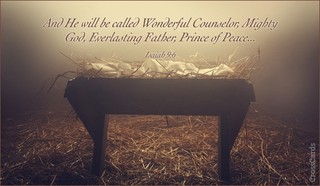- Recent Translations
- All Translations
Isaiah 9:3
Share
Settings
Isaiah 9:3 Meaning and Commentary
Thou hast multiplied the nation
With light, knowledge, honour, and glory, even Galilee of the nations before mentioned, the land of darkness, and of the shadow of death, where the people dwelt; on whom Christ, the light, shone in the ministration of his Gospel to them; whereby the number of believers in Christ were multiplied; and indeed, as he conversed, preached, and wrought his miracles most here, he had here the greatest number of disciples and followers; here were the five hundred brethren by whom he was seen at once, after his resurrection, ( 1 Corinthians 15:6 ) ( Matthew 28:7 Matthew 28:10 Matthew 28:16 ) for this is not to be understood of the Assyrian nation, whose army under Sennacherib was very large; nor of the Jewish nation enlarged by the destruction of that army, or of their increase after their return from the Babylonish captivity; nor of the church of God by the accession of Gentiles to it; but of the land or nation before spoken of: [and] not increased the joy;
or rather, as it should be rendered, "and hast increased joy unto it"; following the Keri; or marginal reading, which directs that it should be read, not as a negative, (al) "not", but (wl) , "to it"; and which is followed by the Targum and Syriac version, and by Jarchi, Aben Ezra, and Kimchi, and others; and the sense of the words requires this reading, since it follows, they joy before thee;
or otherwise there would be a manifest contradiction in the text; though some, to avoid it, read the words interrogatively, "hast thou not increased the joy?" thou hast; and in this way both the Keri and the Cetib, the reading and the writing, may be taken in, "hast thou not increased joy unto it?" and so as Gussetius
F9 renders it,
``thou hast multiplied the nation to whom thou hadst not given great joy:''that is, temporal joy; though now much of that which is of a spiritual kind: Christ the light appearing, his Gospel being preached by him, and his apostles, and many believing in him, occasioned an increase of spiritual joy in those parts; and so it is, that wherever the Gospel comes, and Christ is preached, and souls are converted, there is great joy, ( Acts 8:6 Acts 8:8 ) ( 13:48 ) where there is any grace of the Spirit, as faith, hope, and love, there is joy; and particularly when a soul is enlightened and quickened, as in the preceding verse ( Isaiah 9:2 ) , it rejoices, reflecting on the state of darkness and death it is brought out of, and on the marvellous light, life, and liberty it is brought into; and at a sight of Christ, his person, offices, relations, and grace, as the sun of righteousness, with healing in his wings, and beaming light, salvation, and happiness; which joy is spiritual, internal, passes knowledge, is imperfect, but capable of being increased: they joy before thee;
the words, both in this and in the preceding clauses, are addressed to God, and show, that as the work of conversion, and an increase of spiritual joy, are from him; so that joy that is given by hint is expressed "before" him, in his house and ordinances, and it is in his sight, before whom all things are manifest; and so it denotes the truth and sincerity of it, which is illustrated by the following metaphors: according to the joy in harvest;
such as is expressed by men in harvest time, both by the rich owners and proprietors, when they have a good harvest, and well got in, and by the poor, who have a prospect of a comfortable supply in a cheap manner; and this simile is used with great propriety and pertinence. Christ and his ministers are sowers of seed, of the word; and hearers of the word are compared to seed sown in different places; and when any number of these are converted, it is a harvest which occasions joy. The Targum is,
``as the joy of conquerors in war;''which agrees with what follows: [and] as [men] rejoice when they divide the spoil;
taken in war: in redemption, Christ has taken the prey from the mighty, and delivered the lawful captive, and has divided the spoil with the strong; and in effectual calling binds the strong man armed, and spoils his goods, and delivers souls out of his hands, and this is matter of great joy, ( Isaiah 53:12 ) ( Luke 11:21 Luke 11:22 ) see ( Psalms 119:162 ) .
F9 Ebr. Comment. p. 423.
